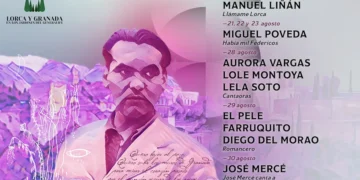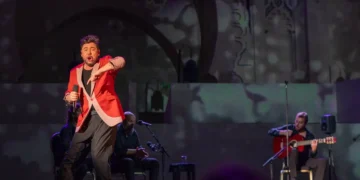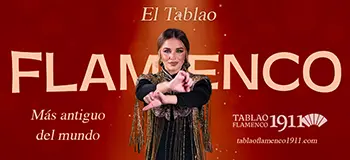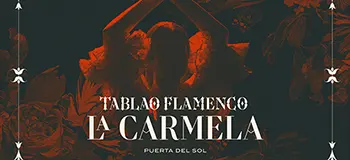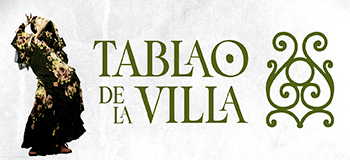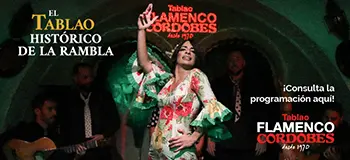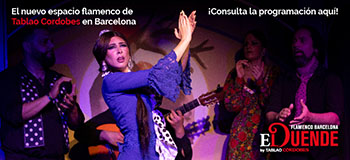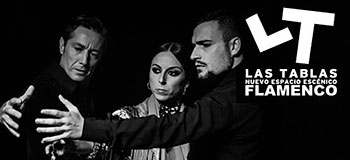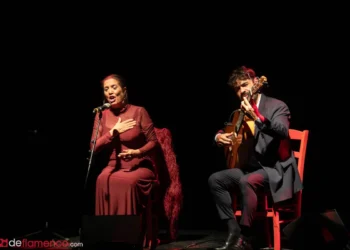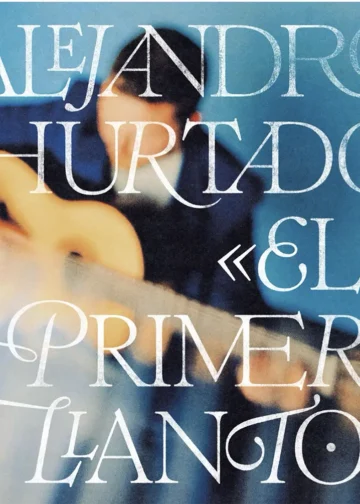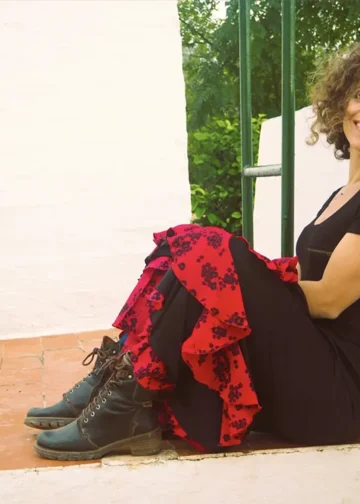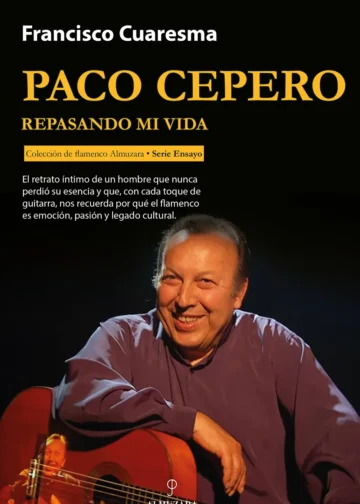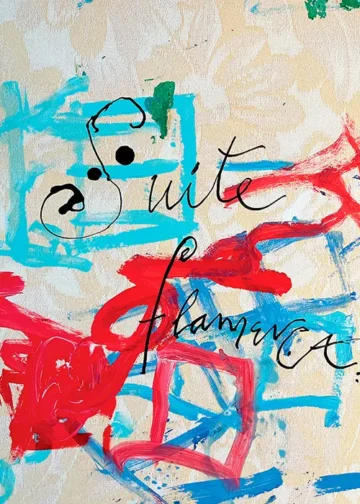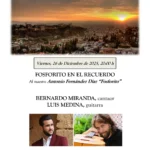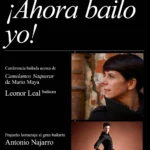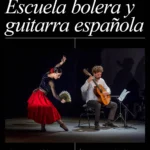|
Text & photos: Estela Zatania
Cante: La Inés, «Tres generaciones» with La Negra,
Lole Montoya and Alba Molina. Miguel Poveda, Fernando de la Morena. Guitar:
Antonio Moya, Pedro Ma. Peña, Chicuelo, Antonio Jero. Baile: Juan de Juan
and his group.
The single letter «L» and two vertical lines in front of the words «Potaje
Gitano» announce that in this year 2008 the fifty-second festival of the
same name was celebrated in the Seville town of Utrera. In fact, the Potaje
was the first festival of its kind in Spain, hence the world, an especially
interesting bit of information precisely at this time when many similar
events are being encouraged to redesign their formats which all too often
have more to do with the local Chamber of Commerce than with the art of
flamenco.
For decades, we flamenco fans were happy with the laidback atmosphere
of traditional festivals, but today's high salaries for artists force
organizers to draw a more general public in order to fill seats, which
in turns changes the nature of the product. So now, parallel cultural
activities lend an intellectual patina that helps erase the concept of
summer festivals being little more than drawn-out drunken happenings.
This year, the Gypsy organization of Utrera that has been running the
festival since its inception, programmed two days of activities. On June
25h, the history of the Potaje was discussed at length, and on the 26th,
a diverse program of activities served as tribute to Gaspar de Utrera
who died last February.
The actual festival took place in the large field of the Colegio Salesiano
with about two thousand people attending, many of whom had come to see
lyric singer Isabel Pantoja, this year's honored celebrity, in person.
At half past ten, presenter Antonio Torres welcomed the crowd, and had
words of tribute for Gaspar de Utrera, as well as Diego del Gastor, a
guitarist adopted by Morón who had close ties to Utrera, and whose centennial
is being celebrated throughout the year. Two brief audiovisuals remembered
the singer and the guitarist respectively.
Next up was Inés Suárez Jiménez, known simply as «La Inés», niece of
Fernanda and Bernarda. Although she never was a major star, she is well-known
among flamenco fans, and much-loved in Utrera. With the exceptional guitars
of Antonio Moya and Pedro María Peña, she delivered a series of bulerías
and tango songs, in the pop flamenco style she dominates so well.
Continuing with female voices, «Tres Generaciones» offered the novelty
of grandmother, mother and daughter together on stage: Lole with her daughter
Alba Molina, and her mother Antonia la Negra. The two younger women interpreted
a typically «lite» repertoire, but La Negra was deliciously old-school
in her tangos with Extremaduran flavor, and bulerías with dance included.
Winning over Andalusia «despite» being Catalonian
When the evening had ended, the singer who closed the first half would
be the big star of the night. This is the year of Miguel Poveda who is
showing up at many summer festivals he has never done before, and winning
over Andalusia «despite» being Catalonian. Even crusty old-timers are
unable to resist the personality, musicality, authentic flavor, good taste,
dedication, professionalism and communicative power of Miguel: since his
triumph at the last Bienal de Sevilla, his ascent has been unstoppable.
His alegrías are sheer genius, his malagueñas, richly bittersweet. He
says he is happy because Utrera is honoring Isabel Pantoja: «thank you
my dear friend» says the charming singer to Isabel. A bulerías song in
the evocative minor key reminds you of times past, a sound now becoming
fashionable again partly thanks to Poveda's hit «Alfileres de Colores».
Tientos tangos…like King Midas, everything he touches turns to gold, and
his buddy Chicuelo on guitar manages the perfect balance between classic
and contemporary….these out-of-towners know what they're doing. Poveda
ends with a brilliant medley of small fragments from favorite old Spanish
songs which he calls «La Radio de mi Madre», 'my mother's radio' – it's
possible only a musician can appreciate how well it's constructed, but
to enjoy good music, no one needs to study. The standing ovation of the
huge crowd for the first time in the evening, is an indication of this
artist's quality.
Intermission, two thousand plates of bean stew, «potaje», are served,
and it's the moment of the official honorary acts. Isabel Pantoja, diva
and grande dame, radiantly beautiful, accepts plaques, praise and applause,
and mentions that this is her 52nd birthday «just like the Potaje Gitano».
She offers a lengthy performance of tangos and bulerías with a fiesta
finale in which Miguel Poveda joins in, as well as Rocío Coral, daughter
of Matilde.
Fernando de la Morena is the most traditional voice of the night with
his repertoire of trillas, soleá, fandangos and siguiriyas, and his usual
high level, but the audience clamors for bulerías, a request which is
inevitably granted with the singer in high spirits, and guitarist Antonio
Jero churning out the Jerez sound.
The icing on the cake was Morón dancer Juan de Juan, with singers El
Pulga, Simón de Marbella and La Tana, the percussion of José Carrasco
and Daniel Méndez on guitar. This young dancer who came of age in Antonio
Canales' company, is a true phenomenon, with astonishing technical ability,
strength and knowledge, but he seemed to be overdoing his generous talents,
going over the top, caricaturizing rather than dancing. A few more years
and he'll come down to earth, no doubt about it.
|









